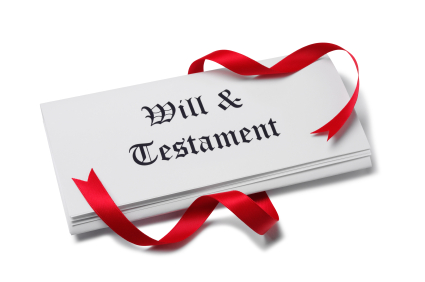
The construction of a Will can alter the date from which it “speaks”. This is an important factor in interpreting the Will, as a small change in its wording can change the way gifts apply. Therefore, it is important to understand how the ordinary rules affect the date from when does a Will Speak.
The rules differ depending on whether we are talking about subject matter (Assets) or objects (Beneficiaries).
Subject Matter
When talking about assets, the Will speaks from death. For example, a gift in a Will of “all my vinyl records” would therefore include any records owned by the person whose Will we are considering (the Testator) at the time the Will was validated, PLUS all subsequently acquired and retained records owned by the Testator up until they died.
Why is this Important?
Firstly, this means that the subject of a wide specific legacy, such as the example above, is susceptible to increasing or decreasing between the date of the Will and the date of death. This is a good reason to review your Will every few years.
Secondly, if this does not satisfy the intent of the Testator, then we know that the wording of the clause(s) relative to such gift(s) should be written differently as a result. Therefore, it may be more suitable to word the clause relating to a particular gift in such a way that the Will speaks from the date of its validation rather than from the death of the Testator.
Objects
When it comes to defining Beneficiaries, the Will speaks from the date of its validation unless there is any contrary intention. Therefore, be aware of this when referring to individual Beneficiaries by only their relationship status to the Testator. This rule does not apply to class gifts (e.g., “all members of a club or society), where the remaining members of the class are ascertained at the time of the death of the Testator.
Of course, this rule does not apply to Beneficiaries identified by name, so it should only be in rare circumstances that this rule causes any problems.
A gift made to a person identified by description takes effect as a gift to the person that met that description at the time the Will was executed, not at the time of the death of the Testator. In simple terms, a gift “to my cleaner” will be a gift to the person who was the cleaner at the time the Will was validated.
If at the time the Will was validated there was nobody who met that description, then the gift goes to the first person after validation of the Will who met that description, or otherwise the gift fails. Therefore, if a gift is made “to my daughter’s husband” but at the time the Will is validated the daughter is unmarried, then the first person to meet that description thereafter would be the Beneficiary. Again, this presumption can be altered with contrary intention so that the Will would speak from the date of death instead. For example, “to my daughter’s husband at the date of my death”.
There was a real case whereby a Will left a right of occupation within a property to a great niece and “her husband”. This was legally construed to mean the husband of the great-niece at the time the Will was validated rather than her husband at the date of the death of the Testator, which was very unfortunate for the subsequent husband of the great-niece.
If a later Will or Codicil (addition to an existing and continuing Will) is executed, then the new Will or Codicil reconfirms the content of the pre-existing Will and ‘republishes’ it. This means that the Will speaks from the date of the new Will or Codicil when referring to a Beneficiary.
For further details WITHOUT fear of consultation fees or obligation, pleas contact us or check out our Wills page for more detailed information.


 TRF Wills (TRF) was created by Michael Cotterill in 2005. He is a member of the Society of Will Writers and registered with the Information Commissioner’s Office.
TRF Wills (TRF) was created by Michael Cotterill in 2005. He is a member of the Society of Will Writers and registered with the Information Commissioner’s Office.